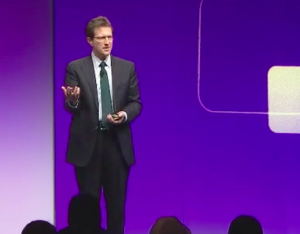MarkLogic held its annual customer and partner conference in San Francisco earlier this month. The company, whose NoSQL database evolved from a simple XML data store and is beginning to disrupt the traditional RDBMS market, is experiencing solid growth. For the calendar year 2014, the company reported total revenue in excess of $100 million for the first time in its 14-year history. It is the largest of the NoSQL pure-play vendors and recently added JSON support, semantic and bitemporal analytics capabilities, and incremental back-up capabilities to its flagship database.
 Unlike competitors DataStax and MongoDB, MarkLogic’s core product is proprietary, not open source. Conversations with attendees make clear that many MarkLogic customers are expanding MarkLogic deployments to new applications beyond their original use case, which focused mostly on search and content delivery. A number of MarkLogic customers are leveraging the company’s eponymous database to gain a so-called “360 degree view of the customer,” bringing together data of varying structure from disparate sources to support analytic and operational applications.
Unlike competitors DataStax and MongoDB, MarkLogic’s core product is proprietary, not open source. Conversations with attendees make clear that many MarkLogic customers are expanding MarkLogic deployments to new applications beyond their original use case, which focused mostly on search and content delivery. A number of MarkLogic customers are leveraging the company’s eponymous database to gain a so-called “360 degree view of the customer,” bringing together data of varying structure from disparate sources to support analytic and operational applications.
This “land-and-expand” strategy is similar to that of data visualization specialist Tableau Software, which also happens to be an important MarkLogic partner. A number of attendees indicated they were replacing Oracle deployments with MarkLogic, citing both the flexibility of MarkLogic’s schema-less design and significantly lower price tag as key drivers.
MarkLogic faces a competitive landscape. The company is essentially fighting a two-front war. On one flank is Oracle, the database behemoth. On the other flank are up-start open source-based companies like MongoDB, DataStax and Couchbase. MarkLogic must thread this needle, positioning itself as more flexible and affordable than Oracle, but also offering more mature and tested key enterprise-grade features – high availability, security, disaster recovery, etc. – than MongoDB et al.
For more coverage and analysis, view the theCUBE interviews, including a conversation with MarkLogic CEO Gary Bloom, below.


